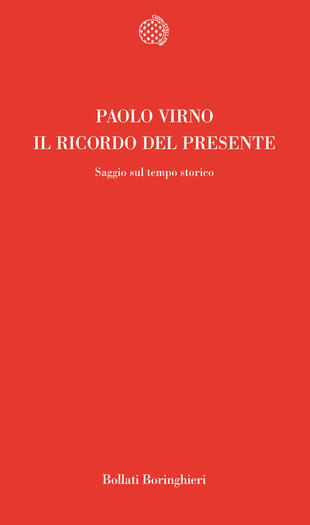

Sinossi
Il "déjà vu" è una inquietante patologia della memoria, in base alla quale ci sembra di rivivere sempre di nuovo qualche frammento del passato. La "fine della Storia" è l'idea, o lo stato d'animo, che caratterizza il senso comune postmoderno. Vi è un rapporto tra le due cose? La "fine della Storia" ha la sua radice nel fenomeno del "déjà vu"? Il libro di Virno comincia vagliando e approfondendo questa ipotesi. Bergson, Kojève, il Nietzsche antistoricista sono gli autori discussi da principio. Senonché, per chiarire la genesi e il significato dell'idea squisitamente contemporanea di "fine della Storia", occorre definire ciò di cui viene proclamato il tracollo: il tempo storico, per l'appunto.
Quali sono le condizioni che rendono storica ogni nostra esperienza, anche la più marginale e innapariscente? Virno risponde tirando in ballo una coppia venerabile di concetti, che sta nel cuore della filosofia occidentale: potenza e atto. Propone anzi una interpretazione dei due termini in chiave temporale: potenza è non-ora, inattualità; atto è "adesso", presenza. Su questa base, si chiede se il tempo storico non sia costituito precisamente dall'intreccio permanente di potenza e atto, non-ora e "adesso", inattualità e presenza.
Inevitabile, a questo punto, il confronto con la tesi di Heidegger, secondo la quale la storicità avrebbe la sua radice nella morte. Nell'ultima parte del libro, le tesi di carattere generale sono messe alla prova nel tentativo di chiarire lo statuto temporale del capitalismo.
- ISBN: 8833911330
- Casa Editrice: Bollati Boringhieri
- Pagine: 162
- Data di uscita: 15-01-1999






